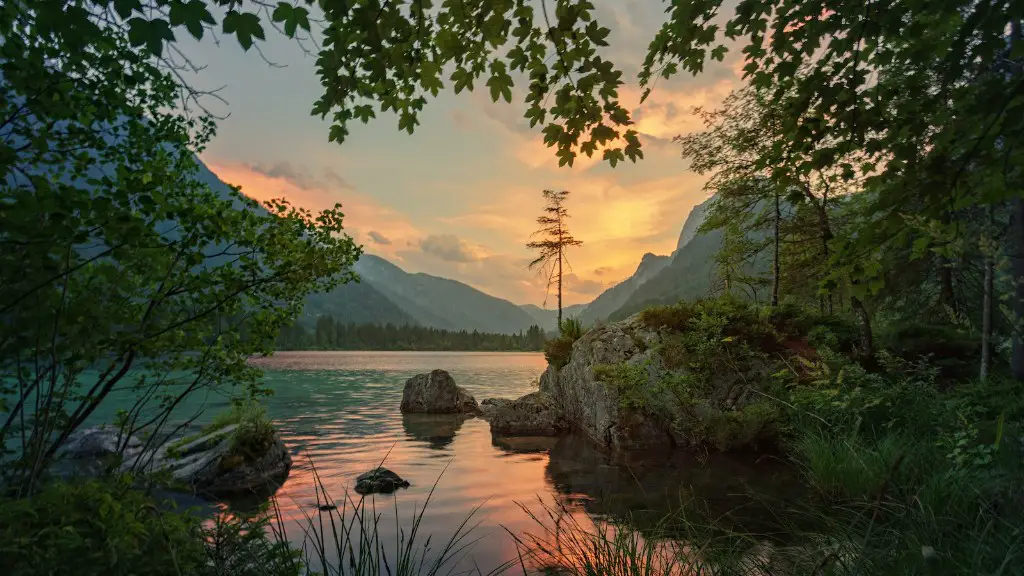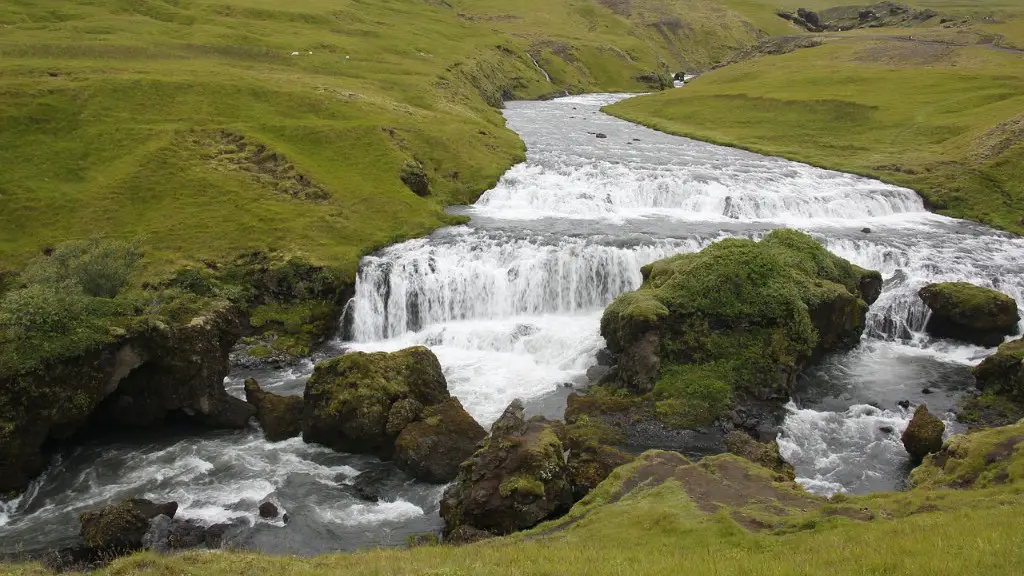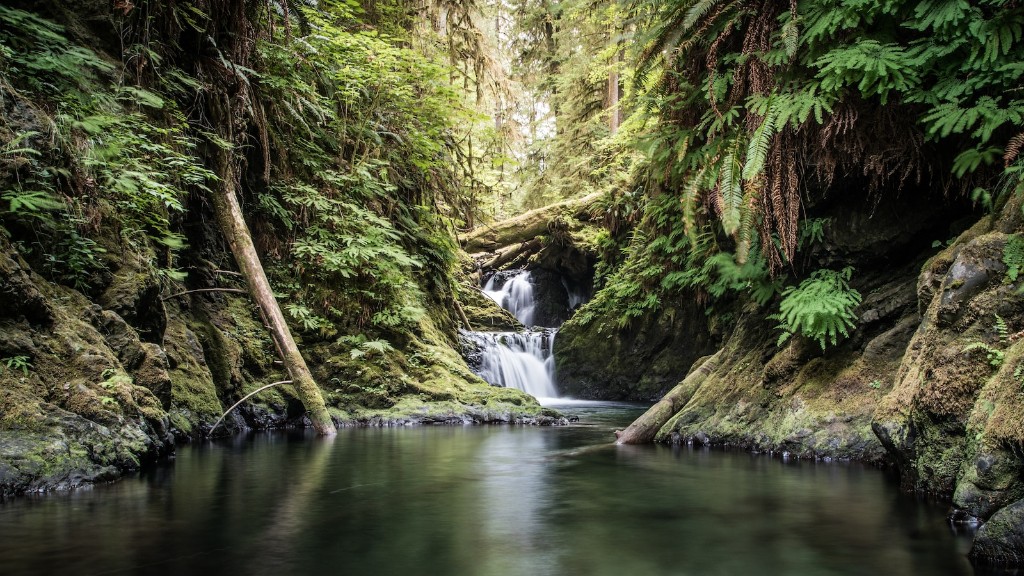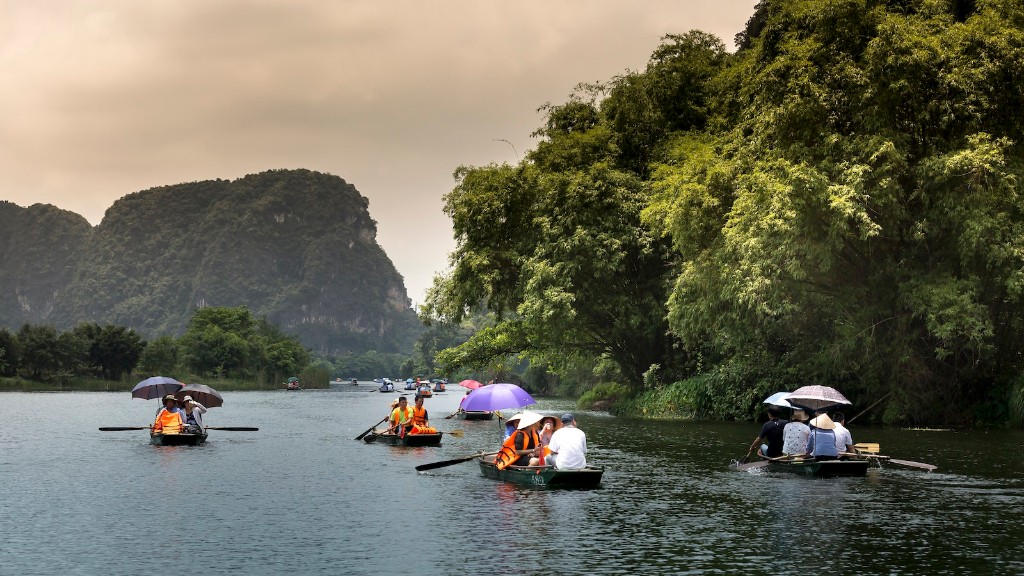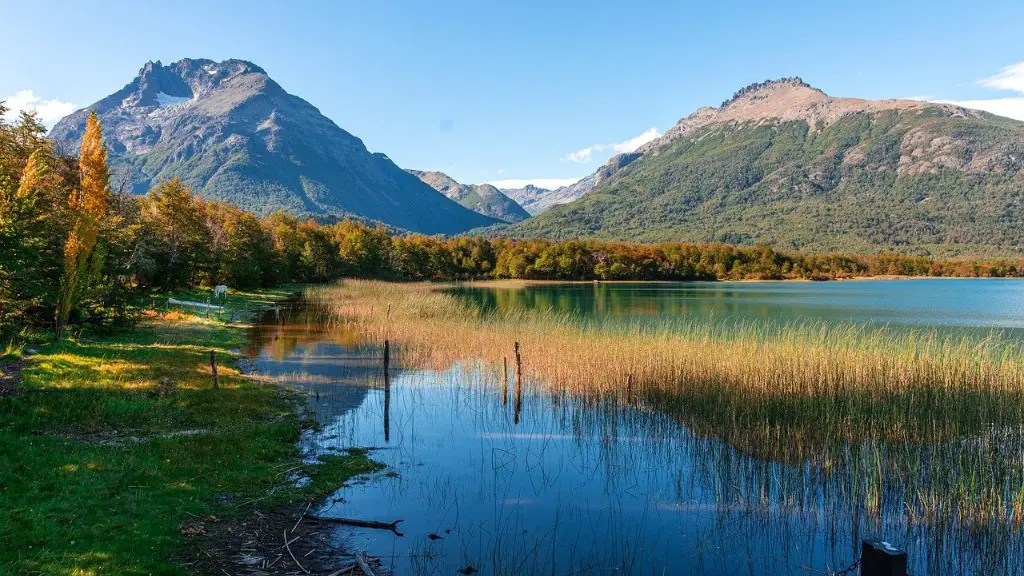Background Information
Mississippi River is known as the fourth-longest river system in the world and the second longest river in the USA.The river starts in Itasca State Park in Minnesota and travels approximately 2,340 miles (3,765km) before it empties into the Gulf of Mexico in Louisiana.It drains all or part of 33 U.S. states and two Canadian provinces. For centuries,people have been travelling down the length of the river either as part of leisure trips or for more practical reasons,such as for transportation and commerce.
Number of People Traveling the River
Estimates suggest that over 5 million people travel the Mississippi River each year.The majority of travellers take day cruises and short trips,with some opting for lengthier voyages using boats and ferries.In addition,people also kayak or canoe down the length of the river as recreational activities.
Notable Travelers
Throughout the years,the Mississippi River has attracted a variety of travelers,including high-profile figures such as Mark Twain,Margaret Fuller and Walt Whitman.In addition,various inventions have been made in order to facilitate the transportation of people and goods along the river.The steamboat was invented by Robert Fulton in 1807,which created a large shift in the way transportation was conducted.
Purpose of Voyages
The primary purpose of voyages along the Mississippi River is said to be leisure-related.People travelling the river often seek to experience the many different neighborhoods,towns and cities along the way.Others travel the river for reasons of commerce and for transporting goods from one place to another,such as agricultural products and other supplies.
Impacts of Tourism
The number of people traveling the Mississippi River has resulted in a tangible effect on the economic activity of the towns and cities which line its length.Tourism has enabled many small businesses to thrive,as visitors can purchase food and other products.In addition,money generated by tourism has often been used to upgrade infrastructure and facilities along the river,such as docking spaces,restaurants and other leisure activities.
Environmental Impact
The sheer number of vessels travelling along the Mississippi River has had a negative impact on the local environment.Aside from the waste generated by businesses along the river,the discharge of fuel,oil and other pollutants from boats can have a detrimental effect on the quality of the water and on the wildlife and plant life which inhabits it.
Safety
Safety is a major concern for those travelling the length of Mississippi River,as there are no guarantees when it comes to the conditions and the activities that are taking place on board.The Coast Guard has implemented a series of preventative measures and guidelines to ensure the safety of passengers.Nevertheless,it is ultimately the responsibility of boat operators to take appropriate measures to protect the safety of their patrons.
Commercial Opportunities
The river provides ample opportunities for entrepreneurs to get involved in numerous commercial activities.The most common activities include fishing and transportation services,tourism operations and waterborne freight businesses.Aside from this,there is also a rapidly expanding market for recreational activities such as kayaking,canoeing and sailing.
Construction Along the River
The Mississippi River has gone through numerous developments,such as the building of levees,dams and bridges.These various developments are designed to minimize the flow of sediment and reduce the risk of flooding,as well as manipulate the water level to optimize the transportation of goods.
Boating Regulations
Regulations regarding boats,including speed limits and widths,are in place for the Mississippi River in order to provide a safe and pleasant experience for everyone travelling along it.Ample time should be allowed when travelling the river in order to provide enough time to see the sights while avoiding potential hazards.In addition,visitors are recommended to be aware of the dangers when on board and exercise caution when necessary.
Educating the Public
Various organisations have been established in order to educate the public on the importance of protecting the Mississippi River.These organisations aim to emphasise the need to safeguard the local ecosystem along the river,as well as to promote the use of non-toxic materials when travelling along the water.
Financial Benefits
The tourism industry along the Mississippi River has brought a financial benefit to communities along its path.Hundreds of businesses along the river rely heavily on the income generated by tourists,as their patronage often results in more jobs,increased spending,and improved overall economic activity.
Environmental Protection
In order to preserve the environment for future generations,a number of initiatives are being implemented to ensure the river is kept safe from environmental threats.These include the implementation of eco-friendly policies,the use of non-toxic materials,the monitoring of water quality and the enforcement of strict regulations.
Cultural Significance
The river is also an important cultural feature in the local communities,as many of their beliefs,traditions and values have revolved around the river for centuries.Public events and festivals have enabled locals to interact with other cultures and observe the customs of other places.
Recreational Activities
Recreational activities have become increasingly popular along the river,as visitors can take part in activities that are deeply embedded in the local culture.Such activities include fishing,boating,camping,swimming and nature hikes.
Impact of Climate Change
In recent years,the effects of climate change have posed a serious threat to the river and its surrounding communities.Apart from the immediate impacts,such as increased flooding and erosion,climate change can also bring about other longer-term effects.These include the decrease in fish stocks and the displacement of species,not to mention the changing of weather patterns and temperatures.
Restrictions on Travel
Due to the environmental risks posed by boat traffic,the government has placed certain restrictions on vessels travelling the Mississippi River.These restrictions include the prohibition of certain types of fuels,the prohibition of certain operations in certain areas,and limits on the number of boats that can travel through certain areas.
Cities Along the Mississippi
The Mississippi River passes through countless cities,towns and villages,each with its own distinct culture and history.These cities are home to an eclectic mix of people,from the immigrants of the early 19th century to the present day locals.Some of the more notable cities include St. Louis,St. Paul and Memphis.
Conclusion
The Mississippi River holds a special place in the hearts of many people,and travelling the entire length of the river can be an unforgettable experience.Although there are risks involved, the rewards far outweigh the dangers and the number of people travelling the river remains inexplicably high.
